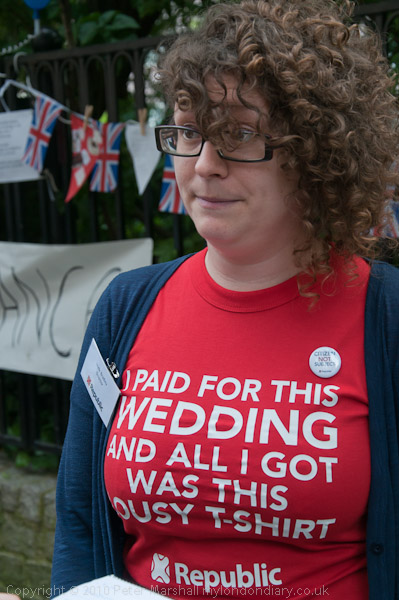
The left, being supporters of democracy and elections, have never been great enthusiasts for unelected rulers, particularly - as many have done historically - when they have claimed a ‘divine right’ to rule. Yet in Britain republicanism, the idea that there should be an elected head of state, has been a minority trend if one is to compare it for example to French Republicanism which had a revolution in 1789 to remove the King permanently. It’s true of course that on 30 January 1649 King Charles I lost his head in Whitehall, and a Commonwealth was in place until 1660. At that date the monarchy was restored although the events of 1649 have a place in radical history and thought to this day.
Republicanism in Britain in addition has not always been associated with the left. One need only look at President Trump to understand why in the present moment this might be. Rather the majority trend on the left has been to have a distaste for the patronage, privilege and forelock tugging that goes with royalty, but to be clear that politically there are other priorities. It is this anti-monarchism, identified by Antony Taylor, an academic who has provided perhaps the best modern template for the study of opposition to royalty, that has been the dominant trend in British republicanism. The monarchy is not liked but it is specific instances of excess and extravagance that are the focus of protest.
It’s in this general context that the forthcoming marriage of the actress Meghan Markle and Prince Harry should be seen. There are complications. Harry is of course a child of the late Princess Diana whose life. and particularly death, did much to highlight twenty years ago how out of touch with the modern world the Royal Family had become. Blair tried to fashion Diana as the ‘People’s Princess’ though it is difficult to see any lasting impact of a campaign that made a considerable mark at the time. Prince Harry however has noted that Donald Trump will not be getting an invite to the wedding as a he is a threat to human rights. This seems to go somewhat further than Theresa May has managed.
It seems very unlikely that her Government is up to ‘launching’ Harry and Meghan as the ‘modern’ face of the monarchy, in the way Blair did with Diana. Yet there is already commentary that Harry marrying a person of mixed race, Meghan, will change the position in respect of race in Britain. It may certainly boost the fortunes of the relatively small BAME middle class, but it will take a great deal more than a wedding to shift institutional racism, or ‘whitewash’ the colonial era and the Empire and the crimes carried out in its name.
It also leaves us with a wider issue and one that was central to nineteenth century protests at royal occasions. These protests centred on what William Cobbett had called ‘Old Corruption’. That is a political culture of deference, patronage and forelock tugging where those who hold ultimate power in society - Britain remains a constitutional monarchy not a parliamentary democracy - do so by virtue of accident of birth rather than on merit or electoral choice.
Royal occasions in the second half of the nineteenth century when Queen Victoria was on the throne, such as weddings and jubilees, provoked significant protest. There were a number of underlying motivations for such protests - not all progressive, there was an element of anti-German xenophobia - but a key one was the cost. Expenditure on royal pomp and ceremony was contrasted with the large numbers in society who lived in absolute poverty. The radical Reynolds’ Newspaper became the biggest selling Sunday paper of the time centrally based on virulently attacking the Royal Family and its aristocratic hangers on. Expenditure on things like the royal yacht and the royal train were particular targets outside of specific ceremonial occasions even at that time. The May 2018 wedding of Meghan and Harry will no doubt be seen by numbers in this familiar context: Austerity Britain and universal credit versus a pageant of the rich with expenditure being no object.
Keith Flett

No comments:
Post a Comment